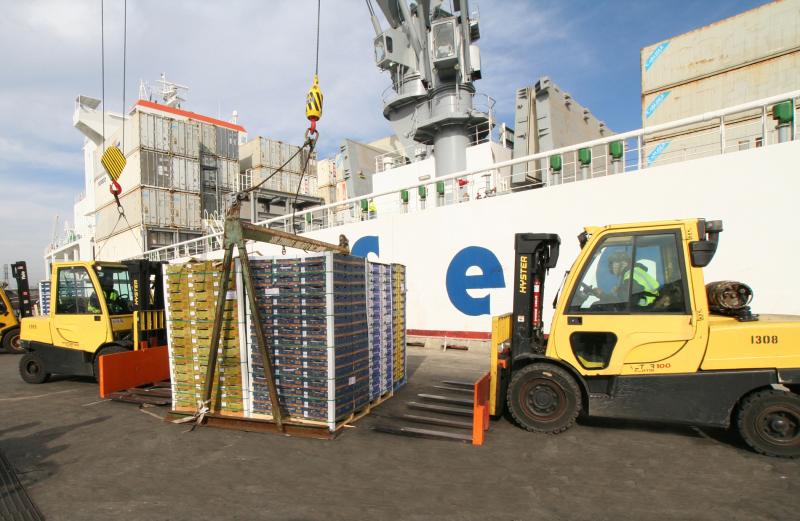Markell, Chile, Red Globe grapes and antioxidants
Gov. Jack Markell returned recently from an economic development trip to Chile. Shipments of fruit from Chile offloaded at the port of Wilmington generate about 900 jobs for Delaware, representing an estimated $50 million in personal income.
Earlier this year, a new trade agreement was signed that will keep those shipments coming for many years. The cost of the governor’s trip - about $30,000. Money well spent.
Locally, that shipping activity helps the piloting industry and is getting stronger. According to Paul Myhre, director of operations for the Maritime Exchange of Delaware River and Bay, which tracks shipping traffic, 2,242 commercial cargo vessels arrived in Delaware Bay in 2015. Of those, 473 - about 21 percent - discharged fruit. In 2016 so far, 1,905 vessels have arrived in Delaware Bay ports and of those, 448 have discharged fruit, or about 24 percent. Total shipping traffic and fruit discharges are tracking up.
My friend Chris and I work out together occasionally at CrossFit. He deals in fresh fruit for all of the U.S. market from the Rocky Mountains east. “When I graduated from college I saw an ad for fruit and vegetables marketers. I’ve been working for them ever since,” he said.
He told me this week the Port of Wilmington is the best port for fruit in the East. “They have great cold storage and they’re very efficient at offloading ships.”
“So what are they bringing in now?”
“They’re just starting with Red Globe grapes and blueberries.”
I wondered about the fact that South America has seasons opposite to ours. It’s springtime down there now. Grapes and blueberries already?
“It’s warmer in the north end of South America, particularly Peru, and they’re starting to pick grapes and blueberries. We also get blueberries out of New Jersey in the spring.”
“What’s with the Red Globe grapes?”
“They mostly go to the Asian markets in Philadelphia,” said Chris. The Asians like them because they have seeds in them.” They will pay more for them than typical Americans will pay.
He said non-Asians prefer the seedless varieties. Makes sense to me. Why eat the seeds?
“They like the crunch and the health benefits.”
Grape seed benefits
Health benefits? Had to look that one up. Seems that much of the antioxidant benefit from eating grapes is concentrated in the skins and seeds. Antioxidants are touted as cancer inhibitors. More grape seeds, more antioxidants.
Chris said Asians also like the cherry red color of Red Globes. And according to one article I found on Wikipedia, there’s another reason for Red Globe popularity: “Their appeal is that they are huge, with each grape as much as two inches in diameter and tipping the scales at up to a whopping three-quarters of an ounce, double the weight of most other varieties.”
Grapes two inches in diameter? That’s as big as a lot of limes. Some people like to freeze the Red Globes and use them as ice cubes.
The same article said Australian growers have gone to Red Globes in a big way because of the lucrative Asian market. First introduced to Australia from California in 1990, Red Globes now account for 95 percent of all grapes exported from Western Australia. But they have also won more respect domestically than in the United States, accounting for 40 percent of all table grapes sold in Perth.
John Haroldson, acting director of marketing for the Port of Wilmington, said Chilean ships make their way up the west coast of South America, transit the Panama Canal (“pre-booked to save time”) and pass Cape Henlopen about 12 to 14 days later on their way to Wilmington. Chris said he likes to know that the fruit has been pre-conditioned before leaving South America, with at least 16 days at 32 degrees in cold storage. “They won’t freeze until it gets down to 28,” he said. “Keeps them fresher.” They are also shipped in cold storage.
Haroldson weighed in one more time, confirming what Chris told me about the Port of Wilmington.
“Wilmington is a niche port that specializes in handling imported perishables and is a national leader in that category.
“We have been handling Chilean fresh fruit since 1977. Experienced labor; infrastructure; value-added services, especially IT-related; and location make the difference here.”
The next time you’re standing on the beach eating a piece of fresh fruit and watching some of those thousands of cargo ships angling toward the entrance of Delaware Bay, take a closer look at the fruit. If it has one of those little sticky labels on it that says Product of Chile, it probably came into the Port of Wilmington on one of those ships.
You’re the endline consumer in a free market trading arrangement important for Delaware’s economy that started with growers in Chile.
















































